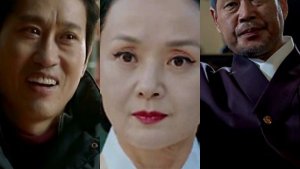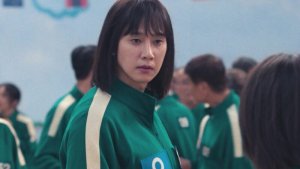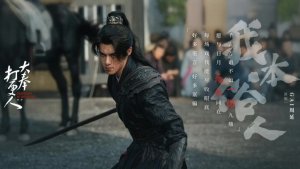 Laugh And Be Merry - King The Land
Laugh And Be Merry - King The Land
Mr. Queen is that one rare drama I watched more than once. And one thought stood out to me always: did the writer and the director of Mr. Queen ask themselves how innovative they could get with food?
(Well, Food is supposed to be just food. What more can it be?)
(Shut up, Secretary Han!)
Acclaimed drama Mr. Queen, starring an ensemble cast led by Shin Hye Sun and Kim Jung Hyun, allocates a respectful morsel of the plotline and run time to the royal kitchen, the royal chef, his faithful assistants, and our very own dearest Queen Chorin, so much that Food becomes an important supporting character in the story. To the extent that she sets in motion a chain of events that rewrite history.
Food is used in diverse ways at various places in the story. A few of them, with the rating for the creativity of thought employed, are listed below in no particular order.
1. Fairy Godmother
Bong Hwan loves Food and Food loves him back too. So, when a jealous secretary Han thwarts Bong Hwan’s plans for a smooth luncheon, almost getting him arrested and nearly getting him killed, Food comes to the rescue!
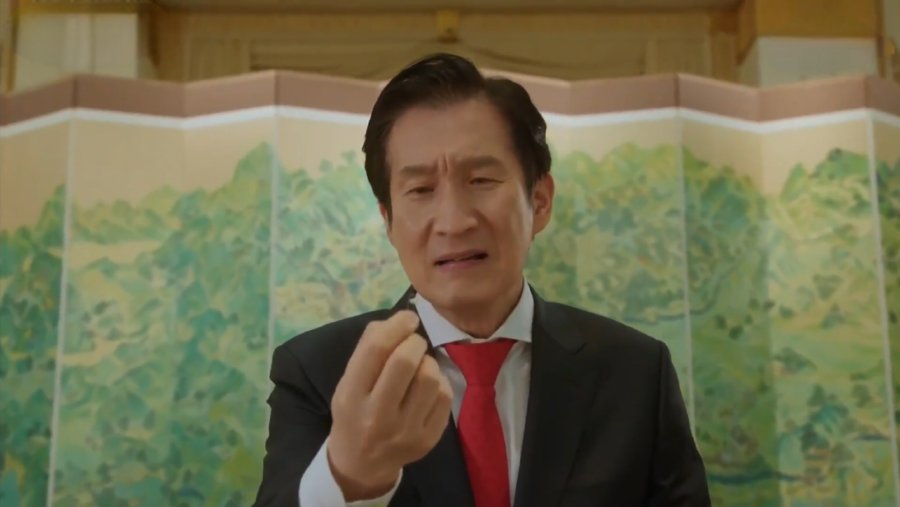
What better way to avenge the man who loves her than to send the said man back in time so that the secretary’s ancestors may be found, and the propagation of the clan be stopped from there?
In retrospect, Food also doubles up as the Knight in sizzler armour for the distressed Queen-to-be and saves her from a rather unsavoury death.
Here, Food is thus the fairy godmother who grants those who tend to her with special powers of time travel and second chances.
A brilliant start to a brilliant story – 4/5.
2. Bribe
Totally done with a Joseon where he’s lost his dragon balls, Bong Hwan attempts to go back by aquatic means, only to find that the lake has been emptied. There’s only one thing to be done now and only one person who could most certainly get it done.
The way to a person’s heart is through their stomach – the Grand Queen Dowager is no exception. Bong Hwan, seeing a plate of meals yet again rejected, tries to gain her confidence by taking advantage of her sensitive gut.
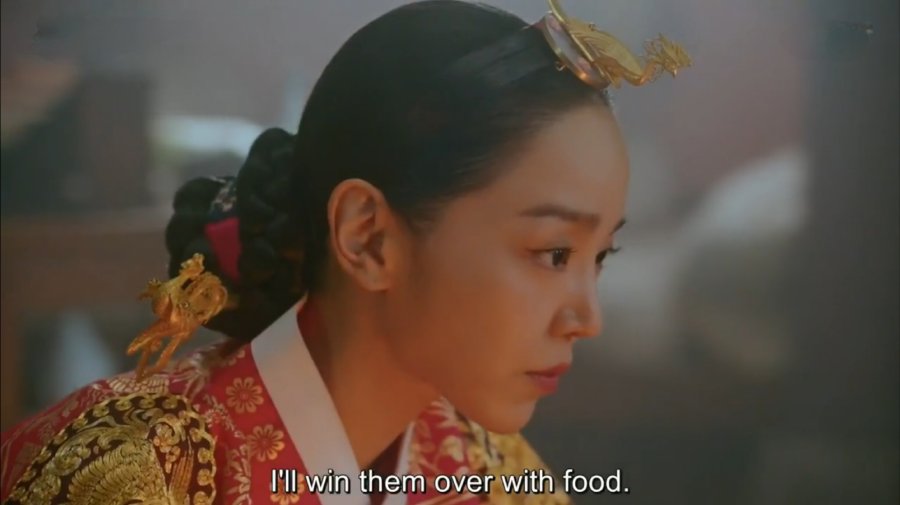
Well, when Queen Bong Hwan and Food are on the same team, the opponent doesn’t stand a chance.
(Thank you for stating the obvious, Secretary Han. Now, turn to page 394).
Food becomes an instrument of negotiation. The Grand Queen Dowager’s belly is full, and Queen Bong Hwan gets the stamp of approval.
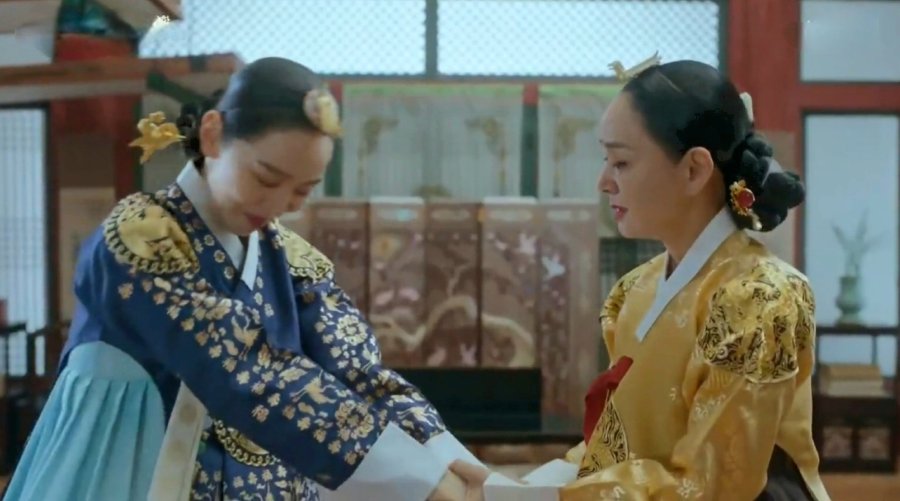
Judicious use of one’s knowledge of food and people – 3.5/5.
3. Incentive
Permission from the Grand Queen Dowager notwithstanding, filling up a lake is no small task.
Despite a good number of royal servants working continuously, it can take days, as the Queen finds out.
Even for the royalty, there is no such thing as a free lunch, sadly. So, our dear Queen comes up with a refreshing idea to lift the mood and spirits of the tired workers.
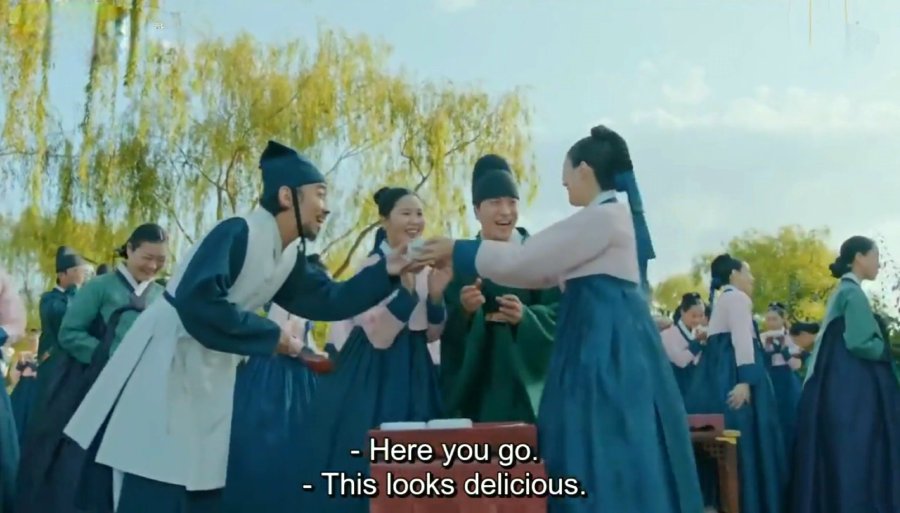
Give them juice, if not booze.
(Write all these down somewhere, Secretary Han. They’ll help you in your next life).
The eunuchs and court ladies are overwhelmed by the Queen’s generosity, and the lake is filled.
Mission = Accomplished.
Clever and quick thinking – 3/5.
4. Rumour Mill
There’s always something going around in the palace, and when the times are bad, it’s a rumour or two from an envious, scheming mother-in-law.
The Queen Dowager, as is usual for her, stirs up trouble by spreading the gossip that the Queen committed suicide a previous night. This disrupts the Queen’s own plans of being pals with the Grand Queen Dowager and her gang.
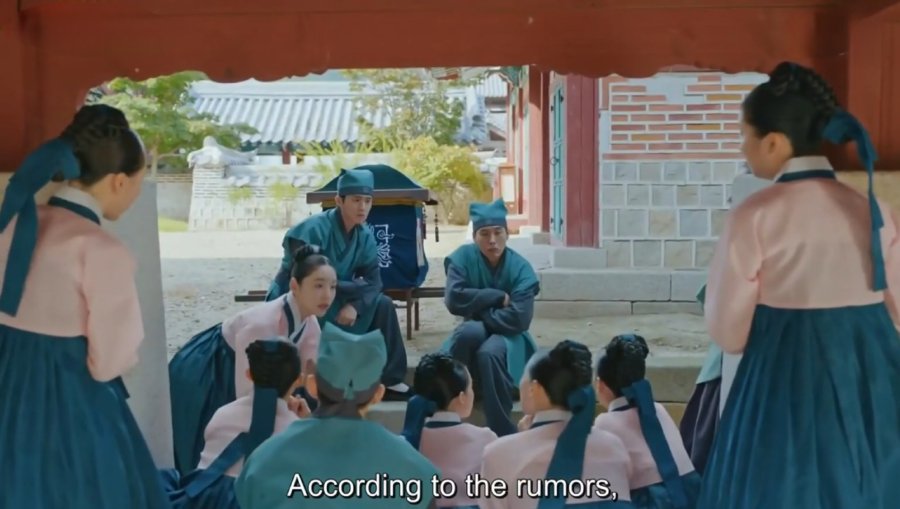
Responding to a rumour is feeding it. But from his experience as a chef, Bong Hwan also knows how much can happen over food.
The Queen thus decides that the best way of countering the rumours, is to create new ones to be carried by the helpful and very convenient (and very loyal) food delivery boys. Court Lady Choi and Hong Yeon can rest assured that the news would reach the guards at the back gate by afternoon maximum.
Creative ingenuity at its best – 5/5.
5. A Wrench in the Plans
Overturning a plate of food served by the King is openly declaring defiance. At an important event like the Royal Banquet, there are appearances to maintain. They just can’t afford to expose themselves so brazenly. But they can overturn the cart of vegetables?
The baddies can’t prevent the feast from happening, but they can prevent the ingredients required from ever reaching the kitchen. As an additional precaution, some diarrhoea-causing measures can also be taken so that the chefs fall ill. No ingredients + no chefs = Humiliated King.
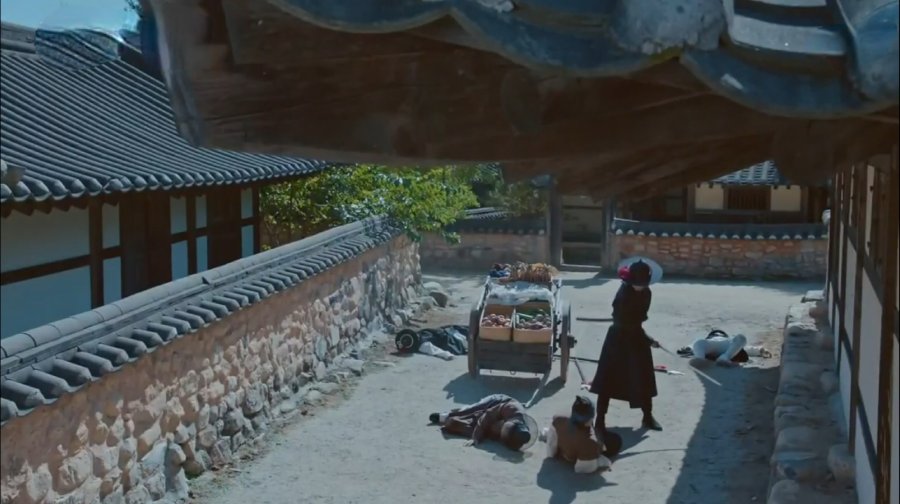
A sound and perfectly foolproof plan.
(Are they all your students, Secretary Han?)
A routine response from the villains that Cheol Jong should have honestly seen coming.
Making the cooks sick deserves merit though – 2.5/5.
6. The King
The Banquet obviously cannot happen in the absence of cooks and ingredients and the King is in imminent danger of becoming the laughingstock. His efforts will be washed down the drain and his plans of establishing authority foiled, without the courses he most religiously thought out.
But the Queen self-appoints herself as the royal chef picked by the King for the purpose of the Banquet and begins whipping up dishes quicker than they can say Han!
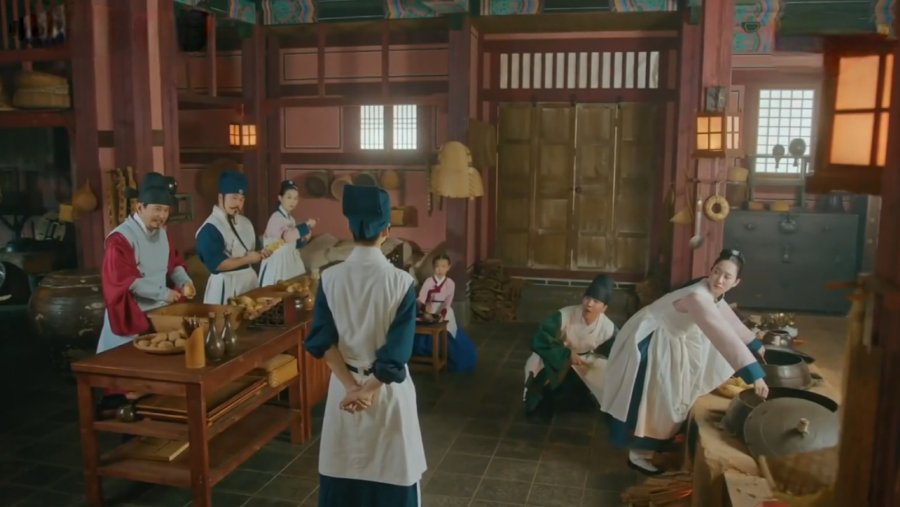
Whether it was through the dishes that Cheol Jong had originally planned with the royal chef or through those curated by the Queen, Food becomes the face of the King, and by extension, the King himself.
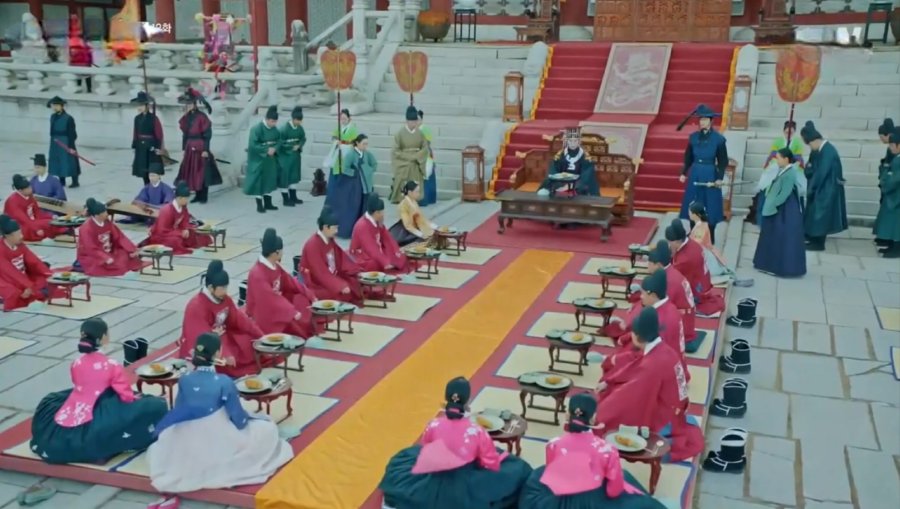
Cheol Jong is saved, his wishes fulfilled and modern street food in Joseon era leaves even the Grand Queen’s brother curious about his fortune stick. The Royal Banquet = Success.
What makes this relatively simple use of Food here is how the different dishes, prepared from the salvaged scraps, manage to convey Cheol Jong’s intentions to the T; the congruity of thought between the King and the Queen that make the event successful. Hence – 4.5/5.
7. Weapon
The power of a sword depends on the hand that wields it. It is true of all weapons. Therefore, Food in the wrong hands is poison. Food can kill. There is no revenge as classic as poison. Garnish it over the meal or marinate ice with it, the dish tastes positively malignant.
When the banquet is saved, there can’t be any sitting around and throwing blame. Revenge is a dish best served cold. If the smell of cooking oil gave away clues about the “Chef Who Saved the Banquet”, quick action against them is warranted. A nondescript invitation to an uncommon “brunch” as a treat of sorts is the perfect setting.
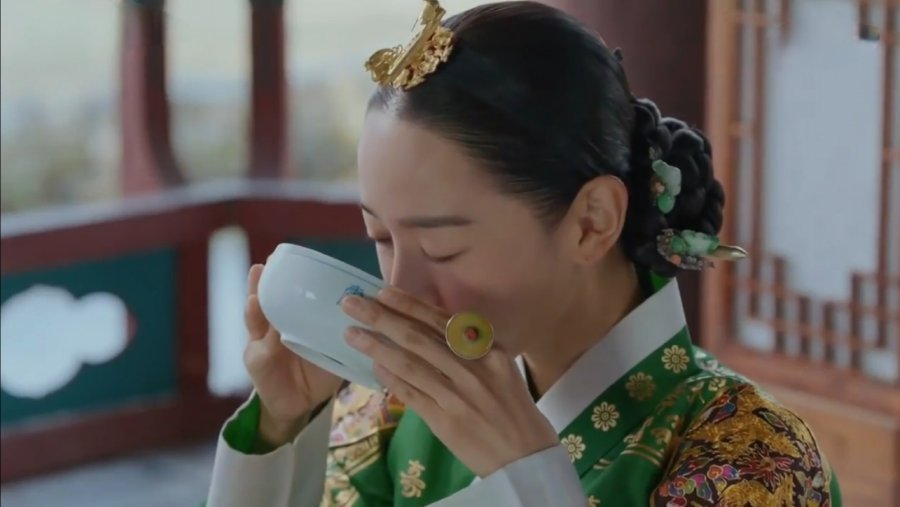
The plan almost goes through, but its failure was only one stone’s throw away, and Dam Hyang, the young court lady helping around the kitchen, picks up that stone. How would Food kill the same people she worked so hard to save anyway?
Food as an instrument of death is not very original but important, considering the times of the kings. So – 3/5.
8. An Instrument
When King Cheol Jong is injured in the bombing at the banquet, the Queen is faced with some testing times and limited choices. She also knows that cooking is invaluable in taking out frustrations with all the distinct steps it entails:
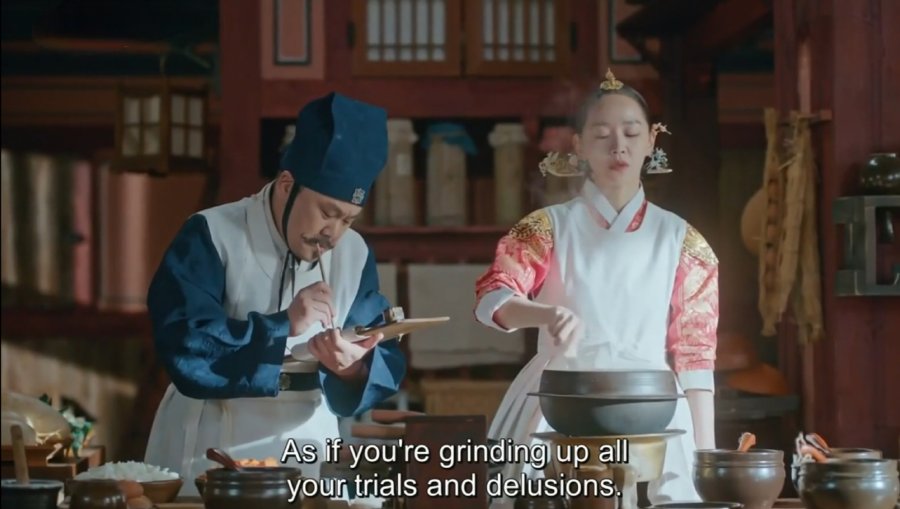
“Cubing the onions and carrots and boiling them in water for an hour.
Grinding worries, troubles and delusions into them.
Stirring for about five bazillion times.
The resulting Potage au carotte is ready to serve.”
As it tastes best when eaten as a brunch – Bu as in woman, Ran as in connecting, Chi as in early – i.e., the breakfast women enjoy together and connect over – the elder ladies are called over.
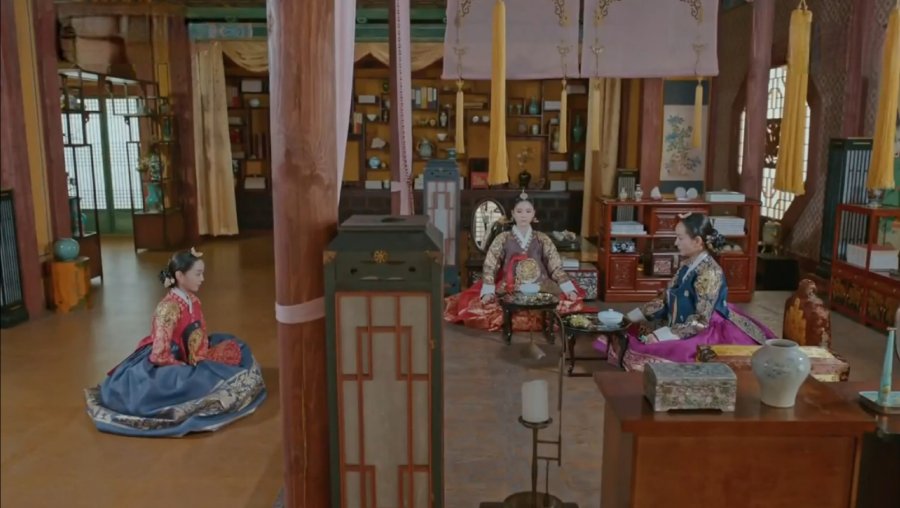
There are no threats or blackmails exchanged. There is no ominous music in the background. Just the warm sweet smell of cooking and hot food. They want the Queen’s food? Very well. She will serve it to them on her own terms.
As a brunch. Together.
(Beat this, Secretary Han!)
Rather than handling them separately, the Queen chooses to fix her overbearing and unreasonable in-laws by tightening some of their nuts into place. A solid 4/5.
9. A Threat
There is almost nothing that can’t be discussed over tea – embroidery, palace affairs, war strategies, warnings, and feelings. Or liquor.
Sneaky Queen attends one (1) royal assembly after forming an alliance with Cheol Jong and decides to control what she can. A similar non-descript tea party invitation is sent to the lords who are surprised to find it was alcohol after all!
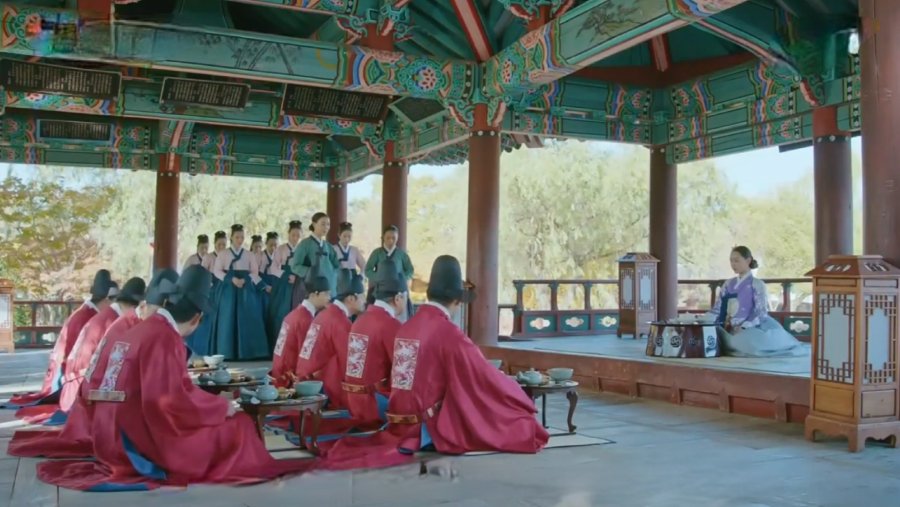
A potent warning delivered effectively using strong liquor. No appeals, no plotting, no Oktajeong and no “That must not be done.”
A straight, out-and-out blow that goes tearing through the bull’s eye, no swords, grenades, plots or poisons needed.
As mentioned above, there is almost nothing that can’t be discussed over liquor about how someone is going to disappear if they don’t behave themselves.
A face-off unlike any other. Mr. Queen = Queen of Innovation 4/5.
10. Transport
Towards the end, the stage is all set for the grand showdown. The Kims are in the process of appointing their new king and Cheol Jong and Co, who are deep in the mountains, are trying to stop it from happening. Getting into the palace is not easy as the gates are being heavily guarded. Yet, palace is where they must be to prevent the coronation.
That is when the Royal Chef and the Queen suggest it. The secret offering wagon monitored by Head Eunuch and the ingredients gate. The plan works flawlessly and it’s a happy ending for everyone involved.
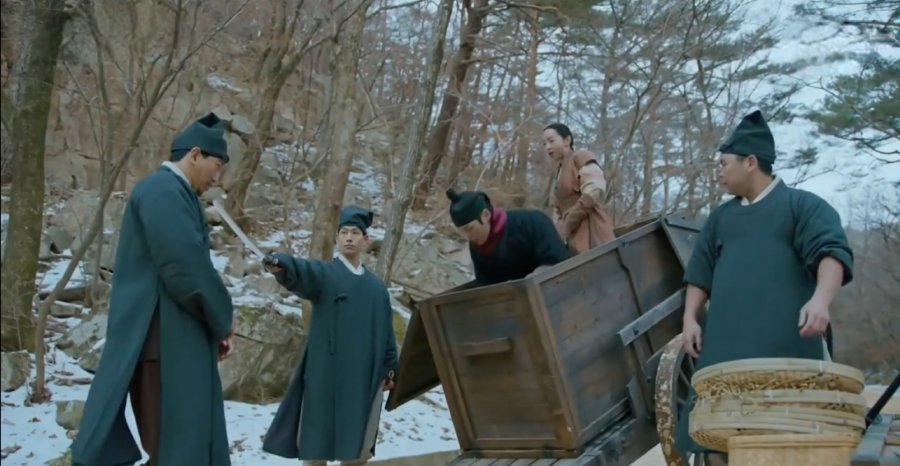
Food wagons become the carriers of the saviours and save Joseon from tyranny.
Where there is Food, there is a way, after all! This is once again not a unique idea but it’s a good one nevertheless – 3.5/5.
“A properly made meal can open up the most guarded heart”, says Jang Bong Hwan early in the story. Throughout the drama, we see several instances of bonding happening over food between the King and Queen.
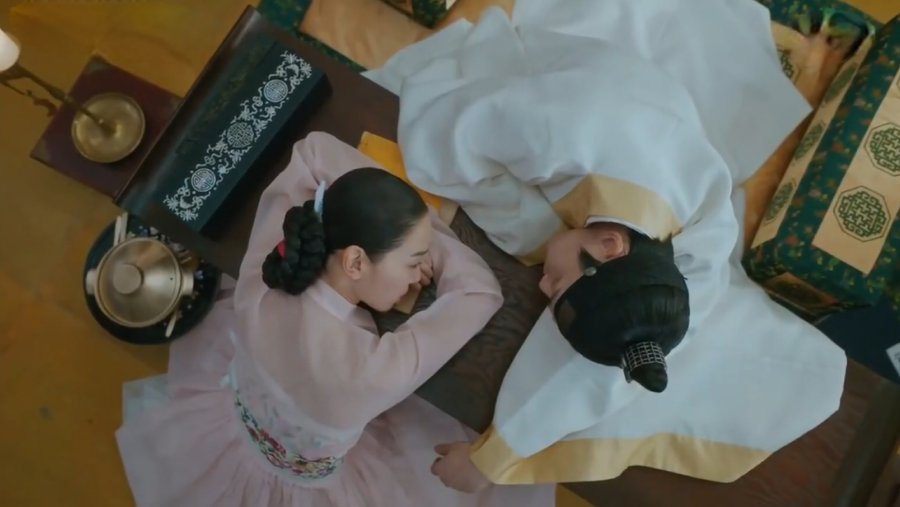 | 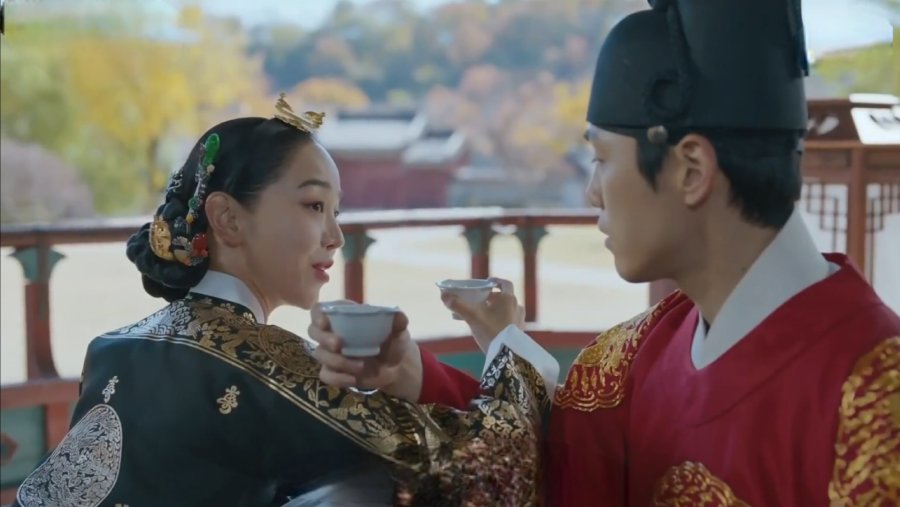 |
Be it a love shot to seal their alliance or Cheol Jong worrying over his Queen being poisoned. Then there is also the other kind of bonding that happens when you shape the seeds (or are they beans, Secretary Han?) like a skull and serve it, but ok, enough.
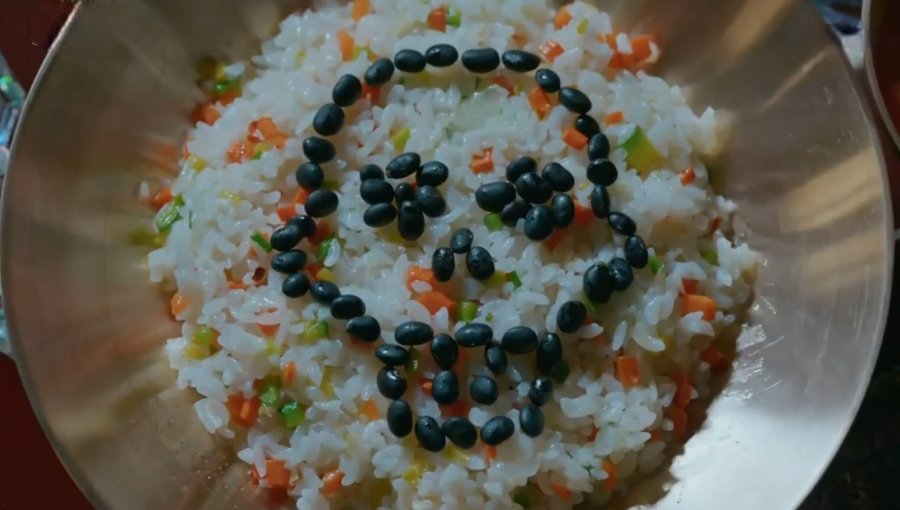
Aside from metaphorically representing food, there are also a good number of interesting anecdotes strewn strategically in the show, like:
“If the main dish is served, it's game over.”
“Politics separates people, but delicious food brings them together.”
“When you start to suspect everything you eat, drink and apply, life is hell.”
(Which Secretary Han is not making note of. His loss.)
Somewhere in between the literal and the allegorical, lies this indisputable truth. Food could have been a side character from the conception of the story. Or the writers included her with the whole “modern chef in Joseon” package. It’s quite impossible to know. Regardless, Food is seamlessly woven into the plot and is crucial both as an element of plot and in making us fall in love with her and the story once again.
Here’s to creativity, food and Mr. Queen. Cheers!
(Time for some Ramyeon, Secretary Han!)
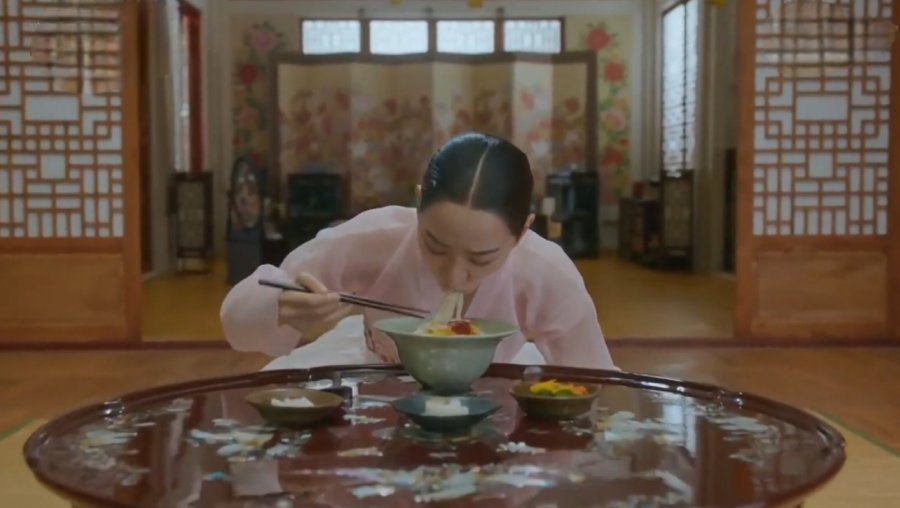
On the occasion of Mr. Queen completing three years this December.
P.S. No Secretary Han was harmed in the writing of this article. (I just thought it would be fun to include the main cause of the time travel plot to be a part of this commemorative piece. Know more about the actor here: Lee Chul Min).
| Credits: All images are my screenshots of the drama. Special thanks to Tine, my ever patient editor. | Edited by: Tine (1st editor) |

